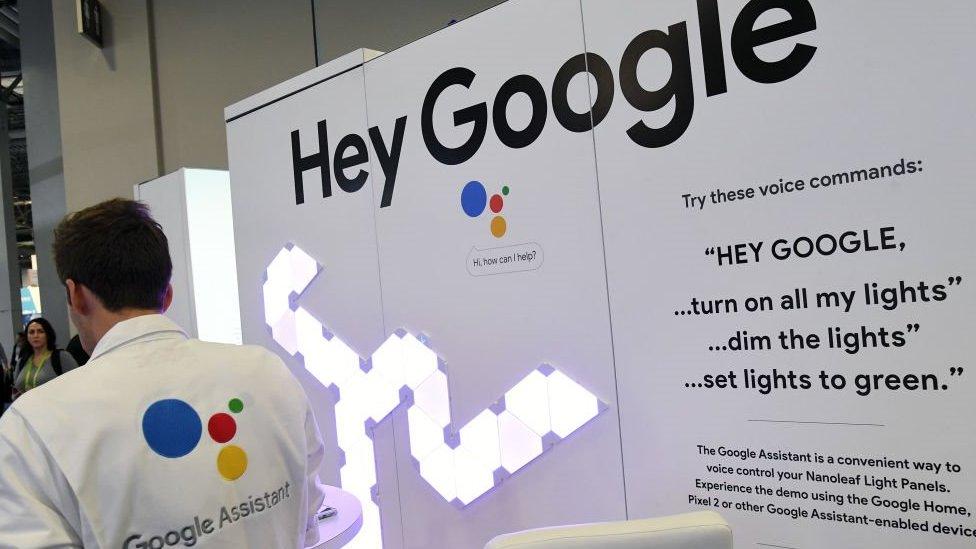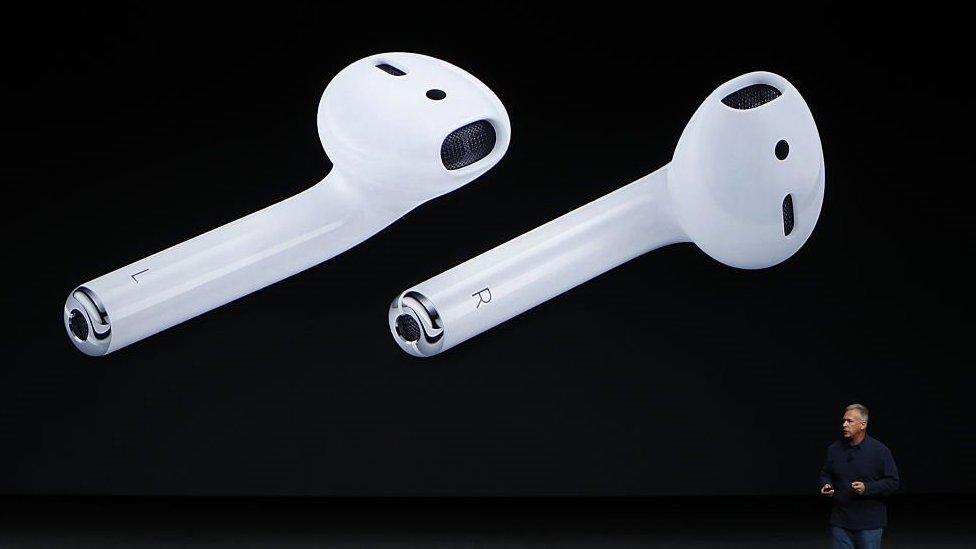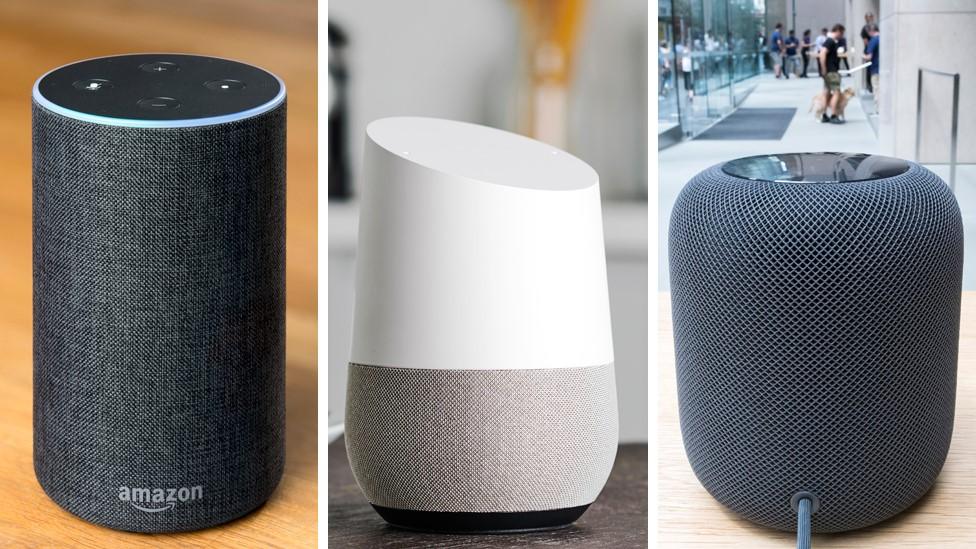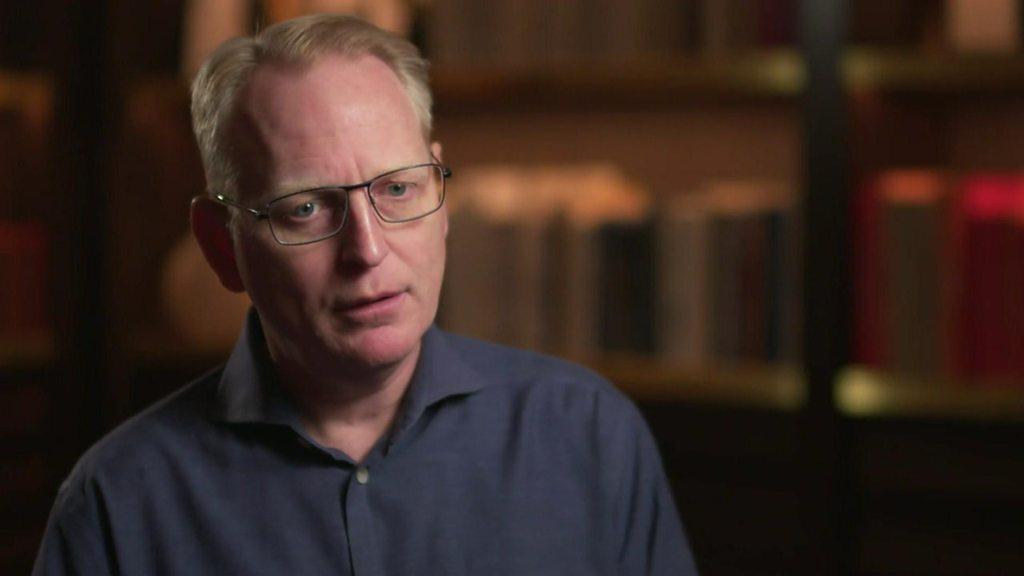Apple and Google stop workers playing back voice recordings
- Published
- comments

Virtual assistants are supposed to send audio to remote computer servers only if they hear a "wake" word
Apple and Google are temporarily stopping workers listening to voice recordings captured by smart speakers and virtual assistants.
It follows a Guardian report, external that third-party contractors used by Apple had heard people having sex and discussing private medical information.
Siri and other services can activate in error after wrongly picking up sounds they mishear as their "wake" words.
Apple said the move would affect users worldwide.
Google suspended the practice across the EU on 10 July but has only just confirmed the fact in public.
Amazon - which also uses staff to transcribe some recordings - is continuing to do so.
Technology companies use staff to "grade" voice recordings to improve their virtual assistants' accuracy rates in handling requests - and take steps to anonymise the source.
Google, for example, distorts the recording before it is listened to in order to disguise the user's voice.
However, many members of the public were unaware of the practice until theBloomberg news agency reported the fact earlier this year.
"We are committed to delivering a great Siri experience while protecting user privacy,” Apple said in a statement.
“While we conduct a thorough review, we are suspending Siri grading globally."
The company added in the future users' voice recordings would not be included in the grading process unless they had chosen to opt in.
Germany's data protection commissioner in Hamburg has also launched an investigation into Google over the practice, with which the search company is cooperating.

Apple's AirPods have encouraged the use of Siri as they make it possible to activate the service without having to touch an iPhone
Speech-recognising assistants were "highly risky" from a privacy point of view, the regulator said in a press release.
"The use of speech assistance systems must be transparent so that informed consent can be obtained from users," added the commissioner, Johannes Caspar.
Google said it had already stopped transcribing voice recordings and would continue to do so for at least three months.
A spokeswoman for the company said Google was "in touch" with the Hamburg data protection commissioner.
"We don’t associate audio clips with user accounts during the review process, and only perform reviews for around 0.2% of all clips," she added.
BBC News also asked Amazon whether it plans to suspend speech monitoring.
In June, Dave Limp - the executive in charge of Alexa - said only a "tiny fraction of 1%" of voice recordings were ever listened to by humans.
WATCH: Amazon’s head of Alexa discussed privacy concerns, in June
But he conceded the company's terms and conditions could have been clearer about the matter.
The firm has also released a fresh statement.
"We already offer customers the ability to opt-out of having their voice recordings used to help develop new Alexa features," it said.
"The voice recordings from customers who use this opt-out are also excluded from our supervised learning workflows that involve manual review of an extremely small sample of Alexa requests.
"We'll also be updating information we provide to customers to make our practices more clear."
- Published11 April 2019

- Published15 June 2019
